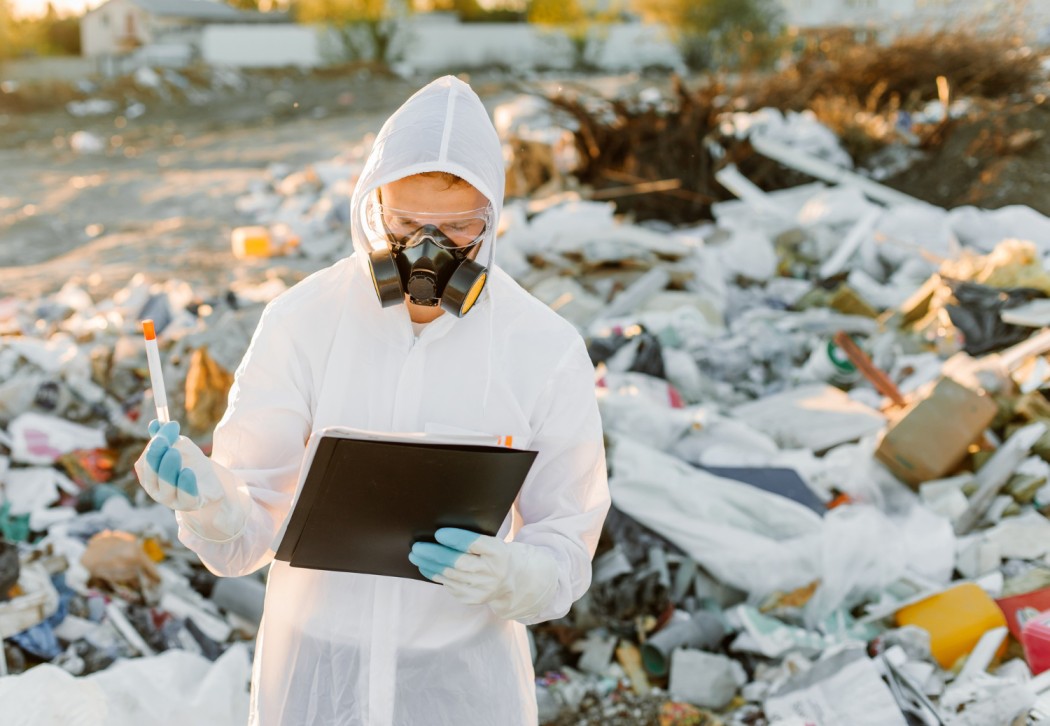Hazardous Waste Authorization Certificate
A hazardous waste authorization certificate is a mandatory legal document to ensure apt and comprehensive management of hazardous waste, from sorting, mobilization, and processing to disposal.
Hazardous waste refers to waste that exists in a form that can be corrosive, toxic, and explosive. From household to industry, such wastes emerge from a multitude of sources. It falls under a waste category that poses a significant risk to environmental and human life.
Such waste falls under the Hazardous Waste (Management, Handling, and Transboundary Movement) Rules, which have undergone several amendments since its advent. The legislation envisages to ensure proper sorting, processing, storing, and disposal of such waste.
An Overview of Legislations that govern different waste type
Depending on the source of hazardous waste, the applicability of the Hazardous Waste (Management, Handling, and Transboundary Movement) Rules differ.
For example, hazardous wastes emerging from households fall under Solid Waste Management Rules 2016, while the wastes coming from corporations and industries are covered under Hazardous Waste Management 2016.
Likewise, biomedical wastes coming from residential settings and classified as domestic hazardous waste fall under the Bio-Medical Waste Management Rules 2016.
Notably, electronics and battery-related waste are governed by the e-waste management rules and battery waste management rules in 2016, respectively.
What is the significance of the hazardous waste authorization certificate?
A hazardous waste authorization certificate paves the definite roadmap for entities seeking a clear-cut and tangible approach to managing hazardous wastes.
The industrial and commercial settings in India have managed to operate at their will while breaching almost all norms concerning pollution and waste control until the advent of waste-based legislation.
From solid waste to bio-medical waste, India’s commercial and industrial sphere has been ruling the chart for decades when it comes to waste generation. To curb this pressing issue, the Indian government has promulgated various legislations, each spanning specific waste types. These legislations seek to ensure apt management of wastes, throughout their lifecycle, by putting the onus on those involved with waste generation.
Each waste type is governed by specific legislation. For example, medical waste is covered under the Biomedical waste management rules 2016. Likewise, hazardous waste is governed by the Hazardous Waste Management Rules 2015. Each legislation underpins definite guidelines for every aspect of hazardous waste management, be it recycling, processing, storing, or transporting.
The requirement of securing a hazardous waste authorization certificate is cited under the applicable legislation.
Underlining the applicability of Hazardous Waste Authorization Certificate
Specifically, this certification governs those who interact with hazardous waste in one way or another, be it by storing, transporting, recycling, or processing. The State Pollution Control Board grants this legal document against prescribed application and paperwork. In a nutshell, the following must obtain this certification:
- Industrial units are involved in generating, treating, recycling, storing, and disposing of hazardous waste.
- Warehouses and storage facilities continually discharge discarded, contaminated, and substandard materials.
- Labs and automobile service centers emit waste that is potentially deterrent to environmental and human life regardless of form, type, or quantity.
- Facilities undertaking recycling and reprocessing activities concerning hazardous waste
- Facilities providing services concerning processing, recycling, mobilizing, collecting, and disposal of hazardous waste.
Paperwork Required for Securing Hazardous Waste Authorization Certificate
You will be required to arrange the following dossiers before applying for a Hazardous waste authorization certificate:
- Registration certificate of the business place/entity/facility serving as a source of waste
- Fire NoC, if required
- Plant layout reflecting where the waste is being treated, recycled, stored, or disposed of
- Director’s or authorized signatory’s ID and address proof.
- Soft copy of “Consent to establish” certificate.
- Agreement soft copy reflecting a legal connection between a unit and third-party units providing services for hazardous waste management.
Process of Securing Hazardous Waste Authorization Certificate
The process of obtaining a Hazardous waste authorization certificate requires applicants to follow the given steps:
Step 1: File an online application
The first step is to file a prescribed application namely Form I. The form seeks key information from the applicant concerning the business and waste management resources.
Step 2: Attach the prescribed paperwork and submit the application
Once you fill out the prescribed form, the next step is to attach the mandatory dossiers. Please refer to the list cited in the erstwhile section to serve such a purpose. Once done, submit the application and document to the respective State Pollution Control Authority.
Step 3: Application and document vetting
Step 3 involves in-depth vetting performed by the SPCB to determine the documents’ accuracy. Any error or discrepancy shall not be overlooked by the authority and hence it could lead to application rejection.
Step 4: Grant of certification
Grant of certification is the final step in this process, but it may not come into effect unless the authority examines and consequently approves the required paperwork. Henceforth, be vigilant while arranging the dossiers and filing the application.
Conclusion
In conclusion, a hazardous waste authorization certificate is mandatory for those covered waste under the Hazardous Waste Management Rules 2015. Any violation of this requirement would incur hefty penalties for defaulters.
The inspection is one of the critical steps while applying for a hazardous waste authorization certificate. Due to stringent rules, chances are you might confront upfront rejection, forcing you to follow the entire process again with no assurance of succeeding.
That is where the Advisor comes into play. Our tailored approach and in-depth acumen in diverse legislation can help you navigate the intricacy involved with different licenses and industry-specific approvals. We ensure minimal turnaround time and unparalleled support throughout the licensing journey, ensuring a hassle-free experience for clients no matter which industry they belong to.




